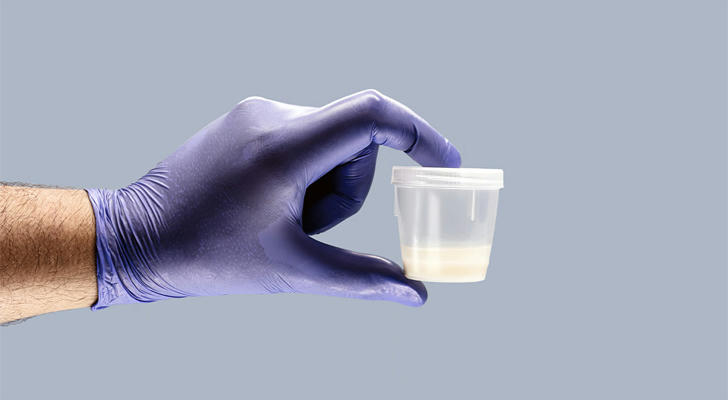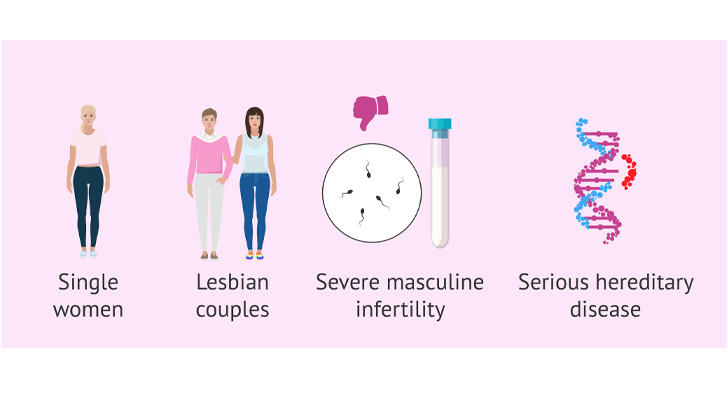Generous Rewards Await You! Why Choose Sperm Donation?

Sperm donation is a transformative act that not only assists couples facing infertility in achieving their dream of parenthood but also provides donors with substantial financial incentives and comprehensive health evaluations. By choosing to donate, you embark on a journey that offers both economic benefits and the profound fulfillment of aiding others.
Understanding the fundamental aspects and importance of sperm donation unveils the reasons behind its increasing popularity and the substantial rewards that can be reaped from this altruistic choice.
Benefits of Sperm Donation
Sperm donation bestows a multitude of advantages to individuals and society at large, with the following being the key benefits:
Assisting Others: Donated sperm offers a chance for couples with male infertility factors to realize their desire to conceive.
Public Welfare Contribution: The act of donating sperm is a selfless contribution to the community, enhancing familial joy and social harmony.
Personal Health Assessment: The donation process involves rigorous health screenings, providing donors with insights into their reproductive health.
Financial Compensation: Donors who complete the donation process are typically granted financial subsidies as a form of compensation for their time and effort.
Advancing Scientific Research: Donated sperm contributes to medical and reproductive research, fostering advancements in healthcare.

Types of Sperm Donation
1.U.S. Sperm Banks: Reputable sperm banks such as California Cryobank and CryoLife offer compensated services, with donors receiving $200 to $1000 per donation.
2.Research Projects: Medical and biological research initiatives requiring sperm samples may provide compensation to donors for their contribution to scientific discovery.
3.Private Agreements: Individuals may enter into private agreements with donors, which could include financial compensation.
4.Online Platforms: Digital platforms facilitate sperm donation, offering donors financial rewards upon completion.
How to Become a Sperm Donor?
The process of becoming a sperm donor includes:
Eligibility Check: Candidates should be healthy, within the age range of 18 to 39, free of genetic diseases, and maintain good lifestyle habits.
Application Process: Submit an application form detailing personal health and lifestyle information.
Medical Examination and Screening: Undergo medical examinations, genetic screening, and psychological assessments.
Donation Agreement: Sign a legal agreement outlining the terms, including legal and privacy considerations.
Regular Donations: Engage in scheduled donation cycles and periodic health re-evaluations.
Case Study: Michael's Donation Experience
Michael, a pseudonym for a 28-year-old college student, stands at 1.80 meters tall and is in excellent health. He decided to become a sperm donor to support families facing fertility challenges and to receive financial compensation.
Donation Compensation
At the sperm bank Michael selected, each donation yielded compensation between $100 and $150. With the requirement for multiple donations over six months to a year, averaging once a week, Michael accumulated a total of $7500 in compensation over six months.
Medical Examination
Prior to donating, Michael underwent an extensive health assessment, including:
Comprehensive Physical Examination: Ensuring the donor's good health with no severe diseases.
Blood Testing: Screening for infectious diseases such as HIV, syphilis, and hepatitis B.
Genetic Disease Screening: Genetic testing to rule out potential hereditary conditions.
Semen Analysis: Evaluating sperm count, motility, and morphology to ensure quality.
These assessments protect the health of recipients and guarantee the donor's sperm meets the sperm bank's standards.
Donation Process
Michael's donation process included:
Consultation and Application: He initiated the process by filling out an application form on the sperm bank's website and scheduling an initial consultation.
Psychological Assessment: His mental health was assessed, and he was briefed on the implications and legal responsibilities associated with donation.
Health Examinations: Post-psychological evaluation, Michael completed the health examinations with satisfactory results.
Official Donations: Upon approval, Michael began his donations, observing abstinence prior to each session to ensure sperm quality.
Sample Processing and Storage: Post-donation, sperm samples were processed and cryogenically stored for future use by recipients.
Conclusion
Michael's experience as a sperm donor was financially rewarding and personally fulfilling. It provided him with a deep understanding of the rigor and significance of sperm donation and an opportunity for personal health assessment. Such positive outcomes are encouraging more young men to participate in sperm donation, offering hope to families in need.

Frequently Asked Questions (FAQ)
For Donors:
1.Impact on Personal Health: Sperm donation is generally non-invasive and does not harm the body. While frequent donations might cause temporary fatigue or a slight decrease in sperm count, they do not typically affect long-term health.
2.Donation Frequency: Donors are advised to donate 1-2 times per week to maintain sperm quality and minimize physical strain. However, the exact frequency may vary based on the sperm bank's guidelines and the donor's health profile.
For Recipients:
1.Quality and Reliability of Sperm Source: The quality and reliability of the sperm source are ensured through rigorous selection processes, including health assessments and genetic screenings, quality control measures, infectious disease tests, and genetic condition evaluations.
2.When selecting a sperm donor, consider:
• Health Status: Ensure the donor has undergone comprehensive health screenings.
• Genetic Background: Choose a donor with a genetic profile similar to the recipient's or the family's needs.
• Physical Attributes: Align the donor's characteristics such as height and hair color with the recipient's preferences.
• Privacy Protection: Ensure the donor's identity is protected and anonymity is legally safeguarded.
• Detailed Profiles: Most sperm banks offer extensive donor profiles that assist recipients in making informed decisions based on individual and familial criteria.
Summary
Sperm donation is a beacon of hope for families seeking to conceive and a catalyst for advancements in medical science. Donors derive social validation and personal gratification from their participation. Moreover, the act of donating is often accompanied by a substantial financial incentive, acknowledging the time and effort invested by the donor. By donating, individuals not only support society but also reap economic benefits.
